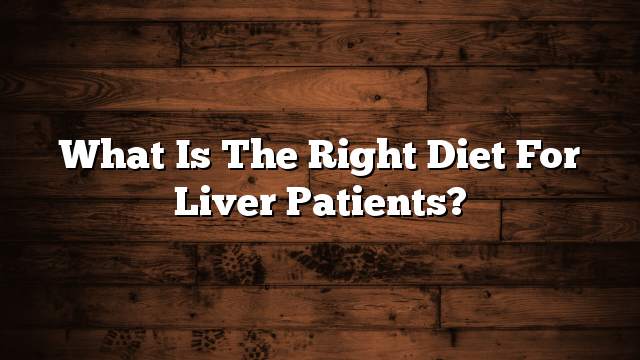The liver is a constituent organ of the digestive system, it participates in the metabolism and it rid the body of some toxins, and it also functions that it stores glycogen, and the manufacture of plasma blood, and rests on the liver responsible for the secretion of gall bladder that dissolves fat in the body, If the liver stops working for more than the full day, this leads to death, and the liver may have some diseases that partially affect its function and the ability to perform its functions. Well suited to the liver and Increase his ability to regenerate and stay away from all that harms him and causes him diseases.
Diet for people with different liver diseases
Every liver disease needs its own diet, but we offer some dietary advice that liver patients may share in general:
- Work on dividing the main meals eaten by liver patients in order to get the required calories, but without the feeling of nausea or loss of appetite.
- Focus on carbohydrate-rich meals, such as rice and boiled potatoes.
- Eat meals that contain sugars to maintain blood sugar but without rising so as not to exhaust the liver.
- Eat low fat meat, chicken, beans, mushrooms, and all kinds of foods rich in animal and plant proteins; they help the liver to replenish its cells.
- Eat easily digestible fats that provide the body with the energy it needs and not to refrain from eating it.
- Focus on breakfast rich in protein and carbohydrates; this meal helps to increase blood sugar, as the liver can not store sugar and therefore after waking up, blood sugar is low.
- Stay away from smoking, leaving drinking alcohol and liquor completely.
- Focus on eating fresh vegetables and fruits, and keep away from rich foods that are harmful to the liver.
- Follow appropriate diets to get rid of excess weight and stay away from high-cholesterol foods.
- Stay away from high-caffeine drinks; they strain the liver.
- Focus on steam cooking in order to preserve the proteins in it, and avoid frying or roasting in cooking.
- Your doctor may prescribe some supplements to compensate for what your body loses, such as vitamins and minerals.
- In the ascorbic disease associated with fibrosis, the patient is prevented from eating salt.
